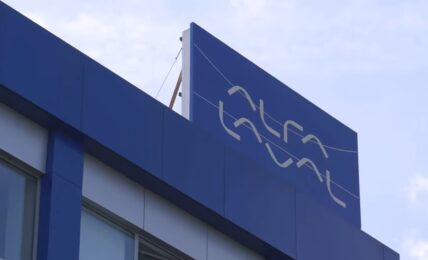A Dutch appeals court began hearings on an appeal brought by energy giant Shell against a landmark 2021 ruling holding the company responsible for greenhouse gas emissions resulting from its customers’ use of its products, and ordering the company to dramatically reduce emissions by the end of the decade.
In a statement released by Shell prior to the beginning of the proceedings, the company argued that if the case were successful it could harm the Dutch economy by forcing companies to reduce or sell operations, and ultimately be counterproductive to the energy transition.
The case was brought by environmental groups including Friends of the Earth Netherlands (Milieudefensie) in 2019, who argued that Shell was in breach of its legal duty of care due to its impact on climate change, and that the company was undermining the ambitions of the Paris Agreement to limit average temperature rise to well below 2˚C, and to pursue efforts to limit to 1.5˚C.
In its 2021 ruling, the court ordered Shell to slash emissions by 45% by 2030, on a 2019 basis, including its Scope 1, 2 and 3 emissions. Shell announced that it would appeal the decision, but also said that it was taking active steps to comply with the ruling.
In its statement explaining its appeal, Shell argued that Dutch law does not include an obligation for companies to reduce emissions by 45% by 2045, and that the target, in exceeding the most ambitious sector-specific policy paths would require emissions reductions from companies “further and faster than even the most ambitious pathways set out by policymakers, such as EU Fit for 55.”
The company also argued that it should not be held responsible for its customers’ emissions, stating:
“Consumers decide for themselves which energy sources they use, in what quantities and from which suppliers. Individual companies have no control over this.”
The company also warned that the case could ultimately harm the Dutch economy by encouraging similar actions against other companies, forcing them to sell or reduce operations, and noting that Friends of the Earth Netherlands recently announced plans for similar legal actions against Dutch bank ING.
In a social media post announcing the beginning of the appeal, Frans Everts, President-Director of Shell Netherlands, said:
“Companies have an important role to play in combating climate change, but Milieudefensie’s approach is not the right one. It undermines the democratic decision-making of governments, can be harmful to the Dutch economy and is even counterproductive to the energy transition.”
Prior to the start of the proceedings, Friends of the Earth Netherlands issued its own statement, stating that it is “confidently heading into Shell’s appeal.” The organization also said that Shell has recently reduced its climate ambitions, and cited a new study indicating that the company will continue to invest billions of dollars in new oil and gas projects for decades.
Last month, Shell released its updated energy transition strategy. While the new strategy included the company’s first interim target to reduce emissions from the use of its oil products, it also eliminated a 2035 emissions intensity goal, and revised down its interim 2030 intensity reduction goal to 15% – 20%, from its prior 20% target.
Donald Pols, Director of Milieudefensie, said:
“Shell is constantly trying to run away from its responsibility to stop dangerous climate change, but they can’t bolt from the courtroom. Climate scientists warn that we need to act even faster than originally thought. Shell may keep putting up smokescreens, but the facts are crystal clear. Their emissions need to be drastically cut.”
The appeal proceedings are expected to conclude on April 12, with a decision anticipated later this year.



